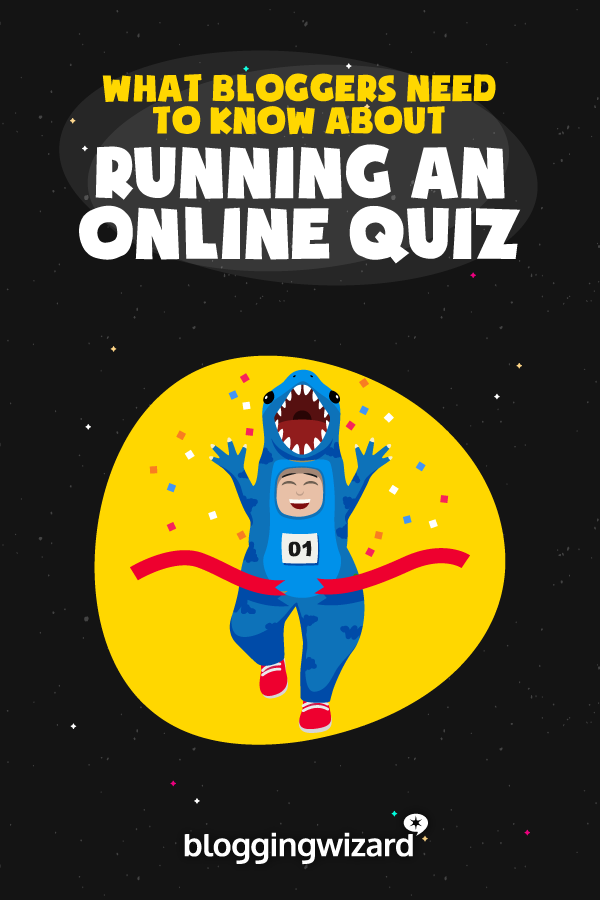Running An Online Quiz: Best Practice Tips To Get You Started
Creating an online quiz may seem more like frivolous fun than an effective marketing strategy. However, therein lies the true beauty of an online quiz.
While quizzes may appear to be just for fun, their interactive nature makes them extremely useful for your online marketing efforts.
Interactive content boosts brand awareness, engages an audience and helps you collect highly-targeted leads that can do wonders to convert future customers.
There is compelling data around interactive campaigns that suggests quizzes can be an effective marketing technique. According to a study by Ion Interactive:
- Ninety-three percent of marketers agree that interactive content is effective in educating their buyers.
- The average quiz has a lead capture rate of about 33.6%. That’s a huge increase over the median conversion rate of 3%-5.5% for lead capturing pages across all industries.
- Eighty-eight percent of marketers said that interactive content is valuable in differentiating their brand from their competitors.
Before cashing in on the quiz craze, consider the different types of quizzes at your disposal. Understanding the function of each type of quiz can help you choose the quiz most suited to helping you meet your online marketing goals.
What types of quizzes are there?
Personality quiz
You are certainly no stranger to this popular type of quiz. We’ve all taken 10 minutes out of an afternoon to find out which character from Guardians of the Galaxy we’d be.
Personality quizzes are not only fun, but they also provide a subtle way for your business to determine the types of products and services your customers prefer.
Knowledge quiz
Testing your customers on how much they do or don’t know about something can help you convert customers.
Perhaps you’re a handyman looking to show how a little preemptive home maintenance can save big money in future repairs, or you work for a bank and want to make known how an expert can help people reach their long-term financial goals.
Whatever your business, a knowledge quiz can be both fun and enlightening for those who participate.
Trivia quiz
Though trivia quizzes may seem similar to knowledge quizzes, they’re a bit different. Trivia knowledge is by definition knowledge of something that is thought to be trivial or of little value.
For example, a trivia question might be, “Who invented the gumball?” On the other hand, “What is the capital of the United States?” is a knowledge question.
Trivia quizzes are best used to challenge participants’ knowledge on a specific topic (e.g. music or sports) instead of testing their general knowledge.
Assessment
While an assessment isn’t technically a quiz, it is a useful marketing tool that fits into the quiz family. Businesses can use assessments to capture highly-qualified leads and give potential customers a sense that your product or service is something they need.
For example, a lender may use an assessment to determine if someone is in a good position to refinance their home by asking these questions: “How long have you owned your home?” or “Have you refinanced before?”

Now that you know your options, you can use these best practices to help you get the value from the quiz you create.
What should you consider when creating a quiz?
Setting a goal
Before you decide which type of quiz to build, it’s important to think about what you’d like to accomplish with your quiz. Setting a goal will lay the foundation for your quiz, including the type of quiz to run, what questions to ask quiz-takers, and how or if you’ll collect data from participants.
For example, if your main goal is simply to get a bit of engagement on Instagram, you can create a post that poses a fun question but doesn’t collect lead information from those who participated.
By setting a goal, you’ll understand how to build your quiz to get measurable and actionable results. Some common goals for online quizzes include:
- Building an email list
- Qualifying new leads
- Increasing audience engagement
- Communicating a need for a product or service, or
- Developing a better understanding of your audience
Keep it relatively short
When producing your own content, it’s easy to forget how short people’s attention spans are. Don’t assume your audience holds the same amount of interest in your business as you do.
Without the text, space and time constraints that other marketing sources have (e.g., a Facebook ad or billboard) it’s tempting to get carried away writing quiz questions for days.
However, lengthy quizzes can be detrimental to participation because they can lead to abandonment.
When creating your quiz, remember your goal and then figure out the fewest number of questions you can ask to achieve it. If you’re offering a tantalizing prize or special offer in exchange for participation, leverage this incentive to ask more questions. Even then, try to keep your quiz as short as possible.
A good rule of thumb is to keep the completion time to about two minutes.
Be mindful of entry barriers
A barrier to entry is any requirement someone must fulfill before they can submit an entry. For example, I’m sure you’ve seen your fair share of Instagram posts that say, “To enter this giveaway, like this post, follow my profile and tag two friends in the comments.”
Even though the entrant must complete three tasks, this barrier to entry is low compared to asking someone to submit before and after photos in a weight loss contest.
You’ll obviously get more entries when it only takes 60 seconds to complete a few actions versus six weeks of hardcore dedication. But are more submissions always better?
This type of quiz has the lowest barrier to entry. You may get comments and follows, but you won’t collect email marketing leads.
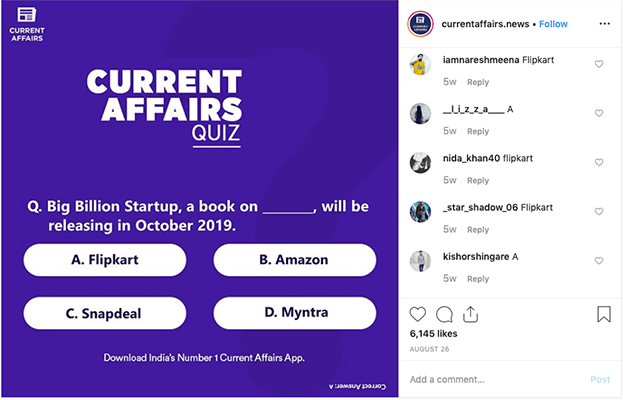
If you’re looking to get more than engagement out of your quiz, stick to the two-minute rule I mentioned before, and keep in mind all barriers to entry you are implementing.
For example, requiring an email address before revealing a quiz score or outcome is a smart move, but it may increase your abandonment rate.
Once again, refer to your goal. If you’re looking to grow your email list or collect qualified leads, ask for that email address—the quality of leads over the quantity of participants will be worth it.
Pro tip: Get useful data without losing out on participation by offering a prize. Use your quiz to build an email list and collect valuable customer insights and gate participants’ results behind an entry form. Entice people with a giveaway to submit the entry form.
Find the right level of difficulty
Even though you built your quiz to help reach your marketing goal, it’s still supposed to be a bit of fun for the quiz takers, so keep it that way.
In the case of a knowledge or trivia quiz, you’ll want to have a good balance of easy and difficult questions. Make your quiz challenging, but don’t make it so hard that participants get discouraged and give up halfway through.
On the other hand, don’t make it so easy that everyone scores 100% by guessing.
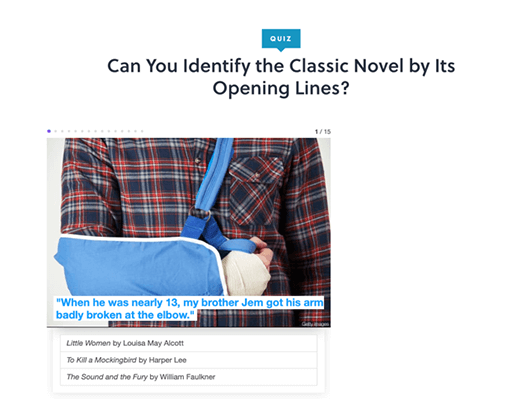
Furthermore, when administering an assessment, it is perfectly fine to let participants get all of the answers wrong. After all, the less they know about a topic, the more likely they are to sign up to learn more about the product or service you are offering.
Try to incorporate trending topics
As I mentioned before, the use of interactive content, like quizzes, is an effective lead-collection and engagement strategy. Take it a step further and incorporate a trending topic (e.g. a popular band, a hit tv show, a new fad) into your quiz questions or theme.
There’s no shame in riding the wave of an internet craze if it helps you capture the attention of your audience.
If the topic aligns with your goal and makes sense to the participant, then sit back and enjoy the boost in your participation rate. But don’t force it, as doing so can make your hard work seem forced.
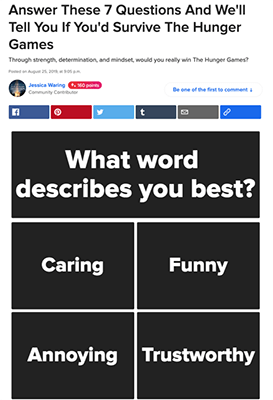
Make sure it’s mobile-friendly
In a world of smartphones, building a mobile-friendly quiz is crucial. If you plan on promoting your quiz on social media, nearly 80% of your audience will see it on their mobile device, so make sure to test your quiz on various phones and tablets prior to launch.
A good quiz builder will offer tools to help you do this without having to round up a bunch of different-sized devices.
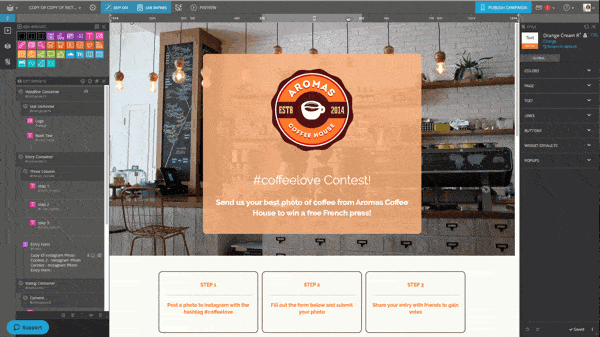
Follow up!
If you’ve built your email list or collected product preferences, don’t let your efforts go to waste! Make sure to follow up with these leads using email marketing. Within your emails, try to include a discount on your products or services in relation to each participant’s quiz results.
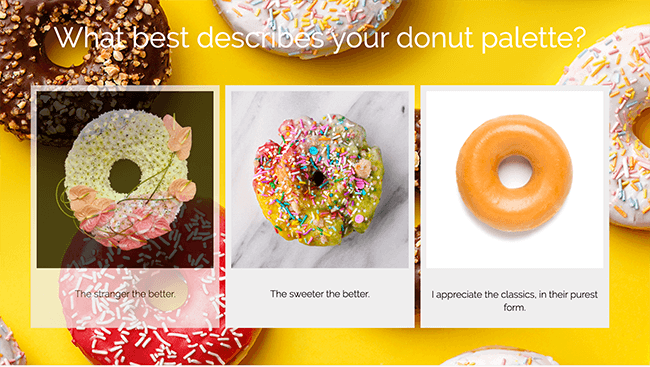
Similarly, if you collected leads via an assessment, follow up with the folks whose answers lead you to believe that they are ready to become customers.
When choosing a quiz builder, find one that comes equipped with email marketing tools or that integrates with email marketing providers. This will make the process of building a list and emailing participants much smoother.
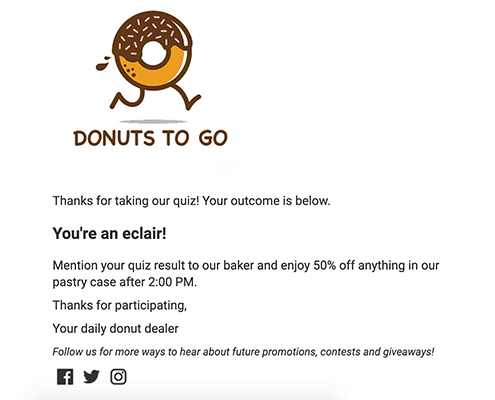
If your quiz was a simple Instagram post displaying one question, don’t forget to post the answer! Part of the magic of social media is the organic engagement between your fans and your brand.
Final thoughts
As with any piece of marketing, some thoughtful planning will increase your project’s chances for success. When it comes to quizzes, you’ll want to determine the type of quiz you want to run and the results you hope to get.
Once those decisions are made, it’s just a matter of asking the right questions and managing the outcomes. Whether your quiz will be used on its own or as a small piece in a grander plan, make sure to follow these best practices for optimum results.
Further reading:

